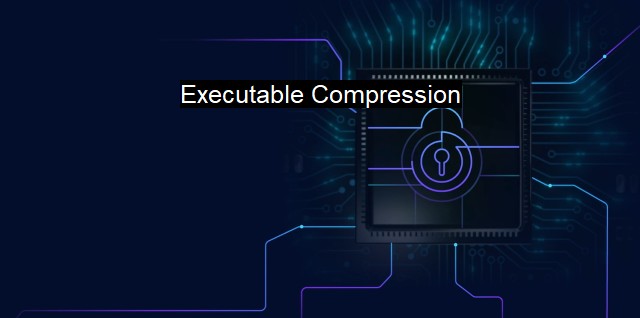What is Executable Compression?
Executable Compression: Balancing Space and Performance Impacts on Cybersecurity and Antivirus Systems.
Executable compression, more commonly known as EXE compression, is quite a common terminology in the field of cyber security and antivirus protection. It denotes a method where binary files or software are compressed to use less disk space or to facilitate easier distribution. The compressed program is called self-extracting as it is capable of executing or opening itself without requiring any other decompression software.The utility of executable compression in the context of cybersecurity has varying implications. On the positive side, programmers often use it to decrease the size of their program, which in turn makes it easier to distribute and quicker to download. Most importantly, it incorporates encryption mechanisms that can safeguard the codes from static analysis and protect digital copyrights. executable compression also comes with some downside that often deals with cybersecurity issues.
Cryptovirology is the field that studies how to enhance the use of executable compression in virus, worm, and trojan executables. It exploits the fact that executable compression permits a manner of polymorphic code. Polymorphic code is a malware that modifies its own code thereby making it indistinguishable to antivirus software. This is where the risk lies; as antivirus software typically attempts to match a segment of code to known malicious code, polymorphic malware changes each time it runs, making detection more difficult.
Cybercriminals frequently use compressed executable files to distribute malicious software. There is a close relationship between executable compression and trojan horse or spyware due to the similar behavior. Both trojan horse and spyware self-extract and execute themselves in the user's machine without the user's consent. both disguise themselves as harmless applications. Once they execute, they inflict harmful actions or spy on the victim user, usually without even drawing the attention of antivirus systems.
Many cybercriminals harness executable compression because by doing so they easily bypass antivirus detection softwares. Antivirus software scans files, including executables, that are stored in a machine's hard drive, and alerts the user if a virus is found. when an executable file is compressed, these files get encrypted as well; Now the encrypted file will not match any pattern in the database of known viruses leading the antivirus scanner to overlook it without flagging.
Given these instances, executable compression presents a significant challenge in the cybersecurity sphere. One approach that some antivirus solutions are exploring is the use of heuristic analysis instead of simple pattern recognition. A heuristic antivirus engine examines files and programs for behaviours usually associated with malware. This method does not entirely rely on virus definitions, and can hence have a higher chance of detecting novel and unknown threats, including compressed malware.
Other approaches to tackle this issue consists of behaviour-based detection and integrity checking. Behaviour-based detection focuses on how the program acts, if it displays any malicious tendencies then the software will flag it, regardless of its cryptic nature. On the other hand, integrity checking is a process where the original checksum of an application is periodically compared with the active checksum, if it varies, a cybersecurity threat is flagged.
While executable compression has both its pros and cons, it does unfortunately provide another avenue for cyber criminals to exploit. With its ability to camouflage malicious programs, it represents a significant challenge to cybersecurity. This necessitates the development of more sophisticated antivirus solutions that can combat these evasive threats. Regular software updates, employing behaviour-based detection, heuristic analysis, integrity checking, and keen scrutiny for unusual software behaviour could be essential in thwarting compromised executable files.

Executable Compression FAQs
What is executable compression?
Executable compression refers to the process of reducing the size of an executable file by compressing its code and resources. This is done to reduce storage space and make it easier to distribute the file.Is executable compression safe for cybersecurity?
It depends on the compression method and the antivirus software being used. Some compression methods may interfere with the antivirus scanning process and make it difficult for security software to detect malware. However, there are also compression methods that are specifically designed to work with antivirus scanners and ensure that the compressed executable remains secure.What are some common executable compression tools?
Some popular executable compression tools include UPX, ASPack, and PECompact. These tools typically use different compression algorithms and techniques to achieve smaller file sizes. However, some antivirus software may flag these compressed executables as potentially malicious, so it is important to test them thoroughly before deploying them.Can compressed executables be decompressed?
Yes, compressed executables can be decompressed using specific tools that can reverse the compression process. However, if the compression method used is proprietary, it may be difficult to decompress the executable without access to the original compression tool. Additionally, some antivirus software may be able to detect and block decompressed executables, so it is important to ensure that the file remains secure after decompression.| | A | | | B | | | C | | | D | | | E | | | F | | | G | | | H | | | I | | | J | | | K | | | L | | | M | |
| | N | | | O | | | P | | | Q | | | R | | | S | | | T | | | U | | | V | | | W | | | X | | | Y | | | Z | |
| | 1 | | | 2 | | | 3 | | | 4 | | | 7 | | | 8 | | |||||||